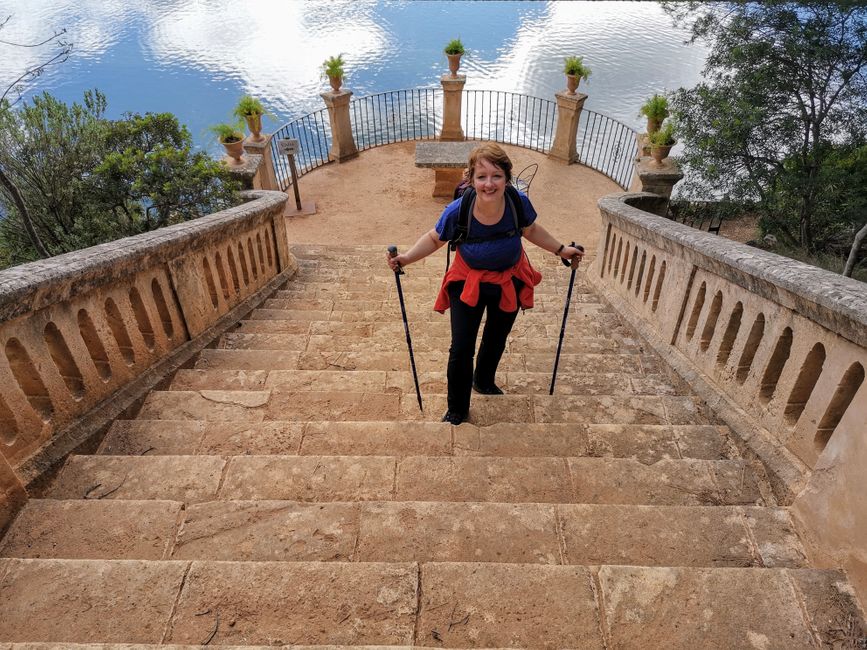Day 10, April 29, 2021: Visit to the Mawa Market in Kasese
Objavljeno: 30.04.2021
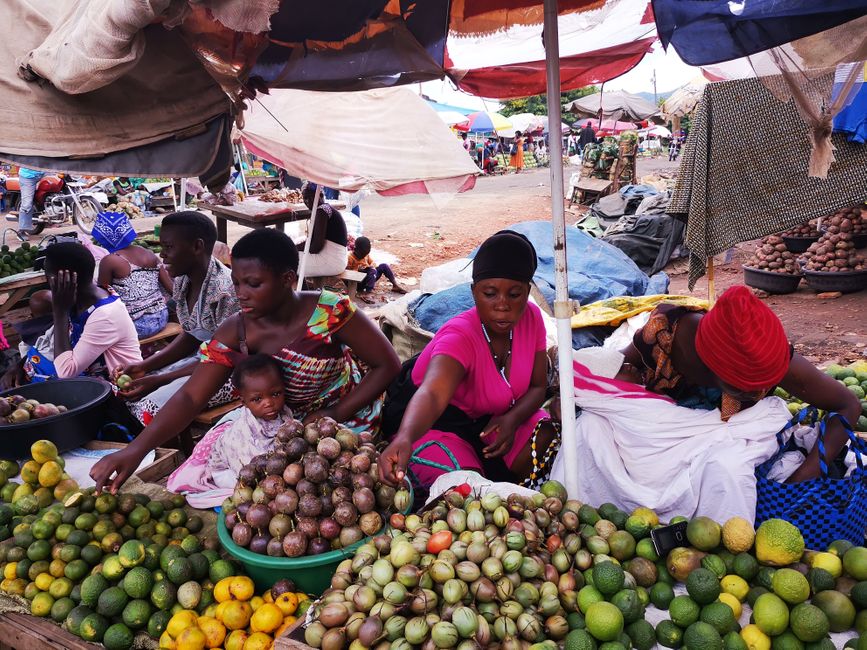
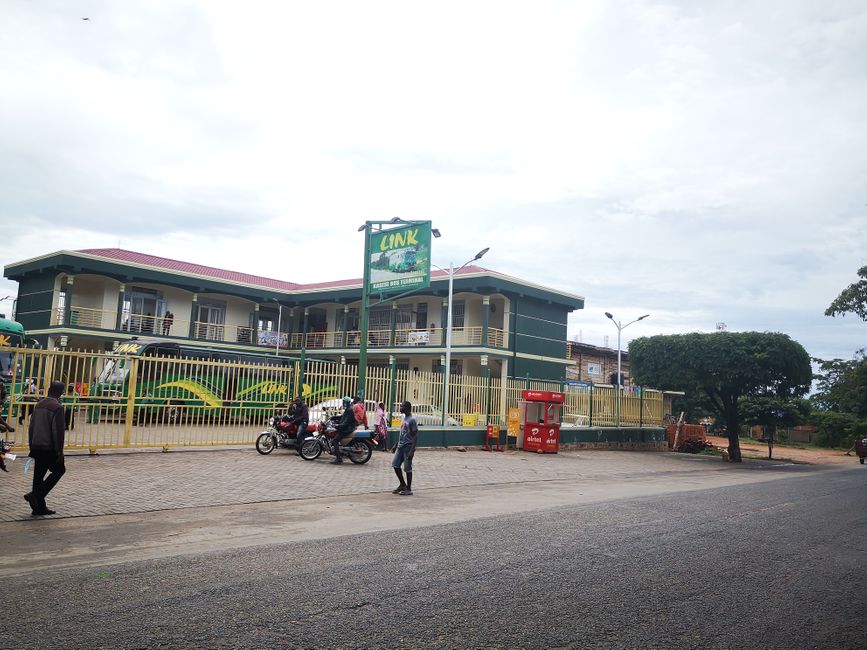
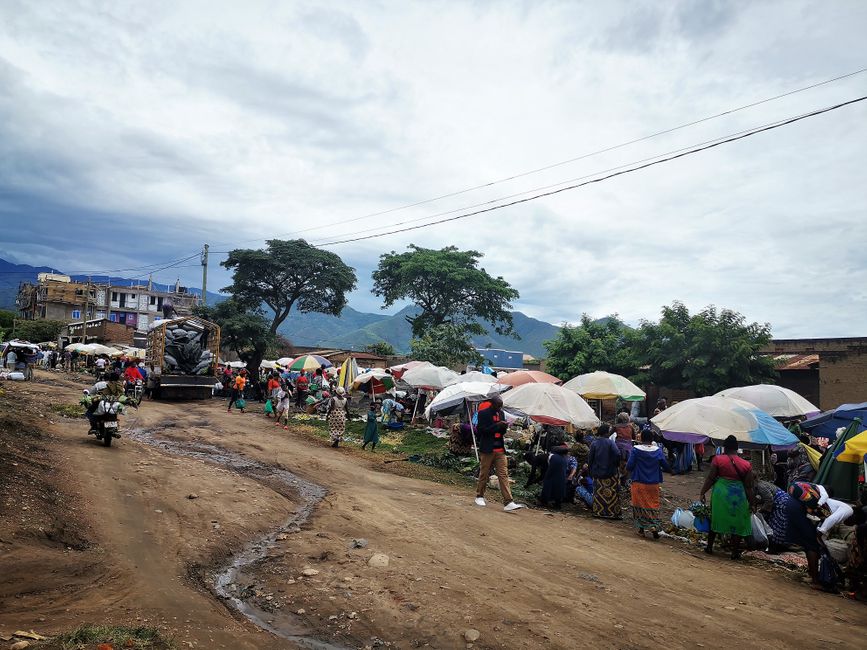
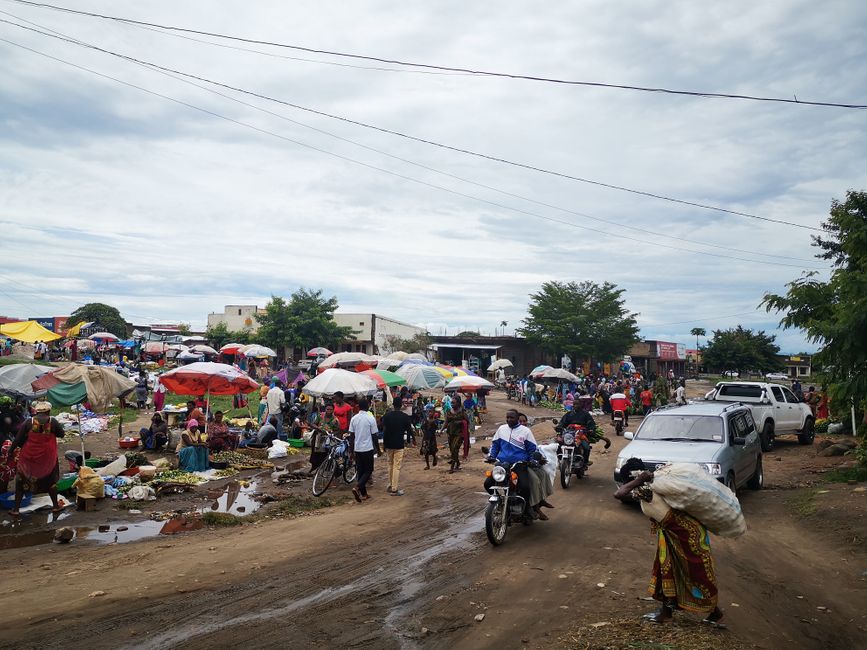
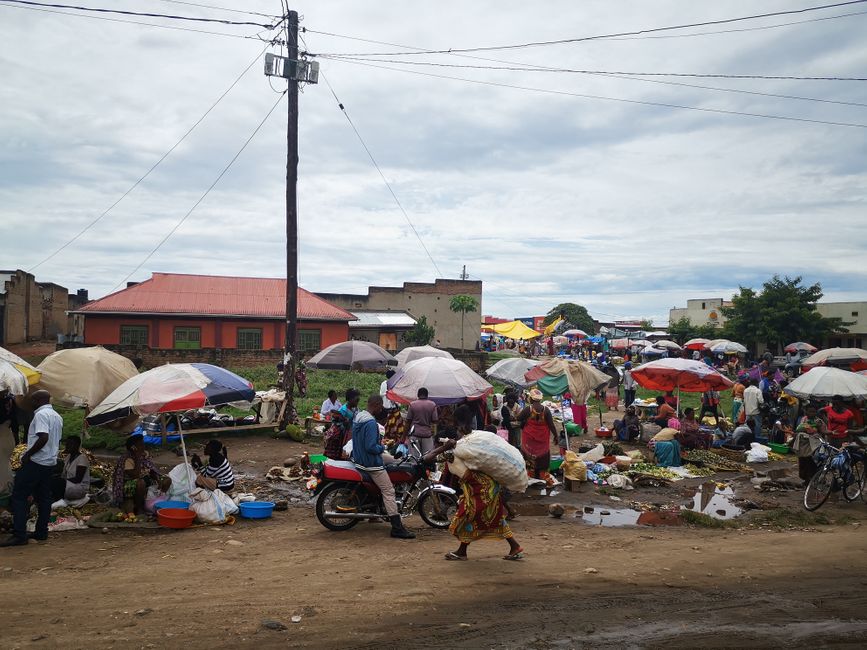
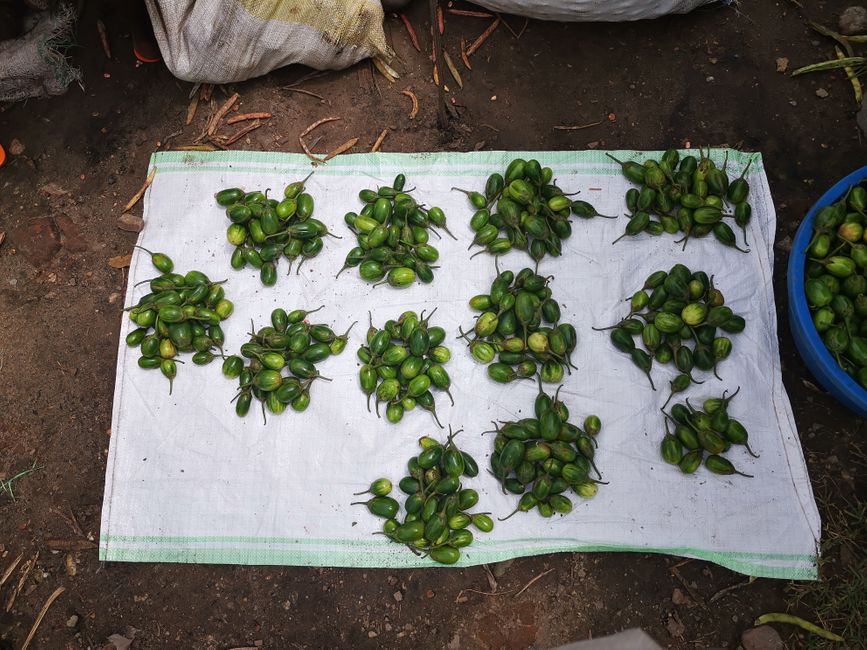
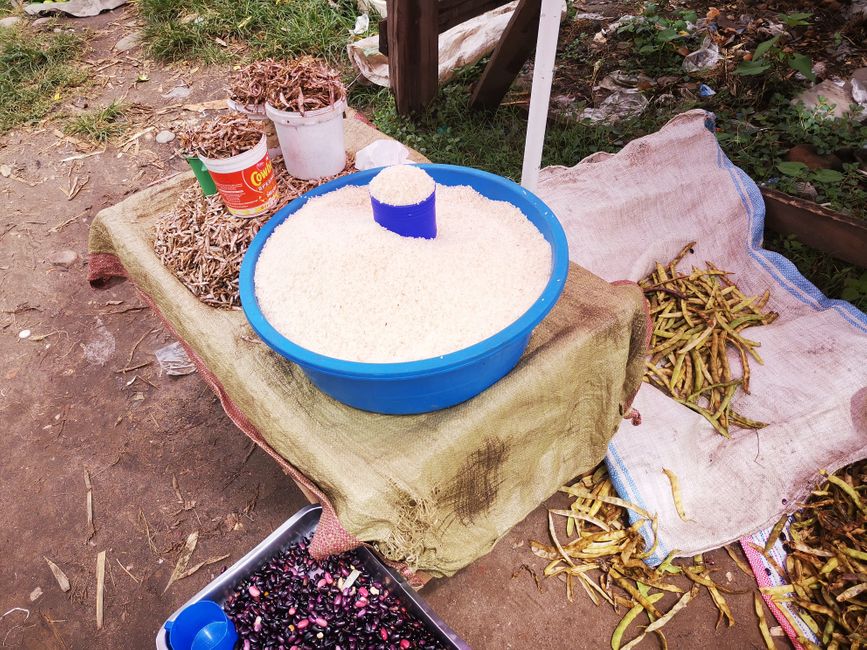
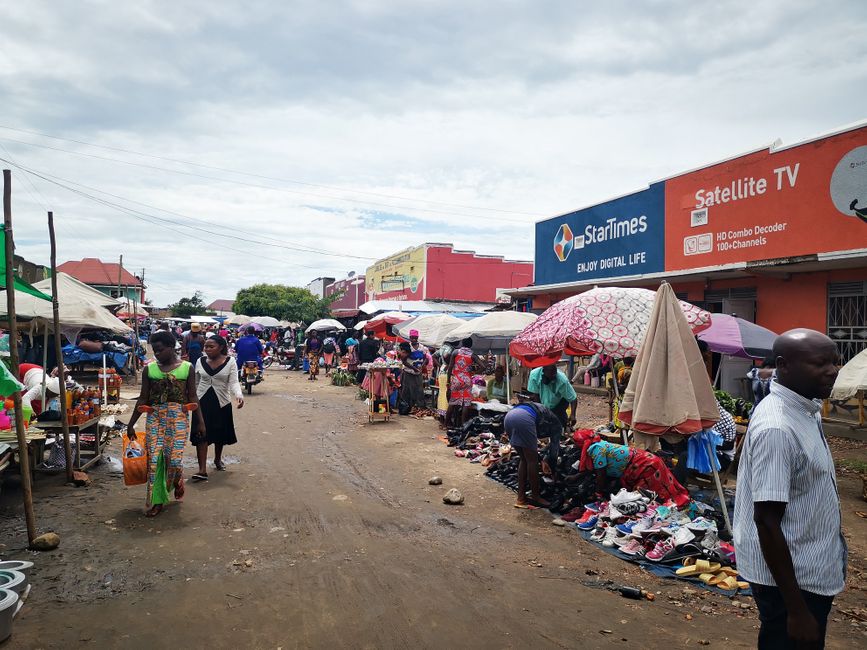
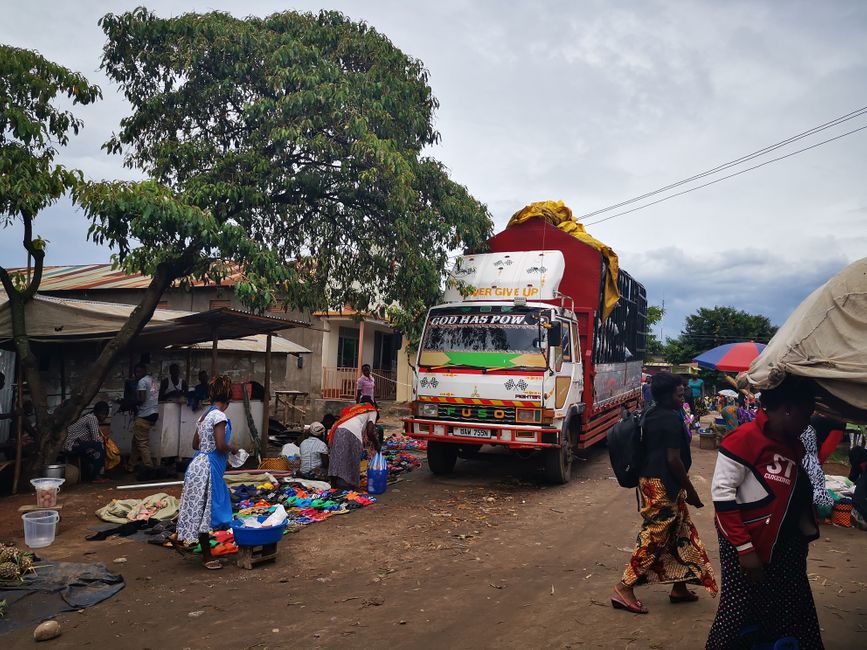
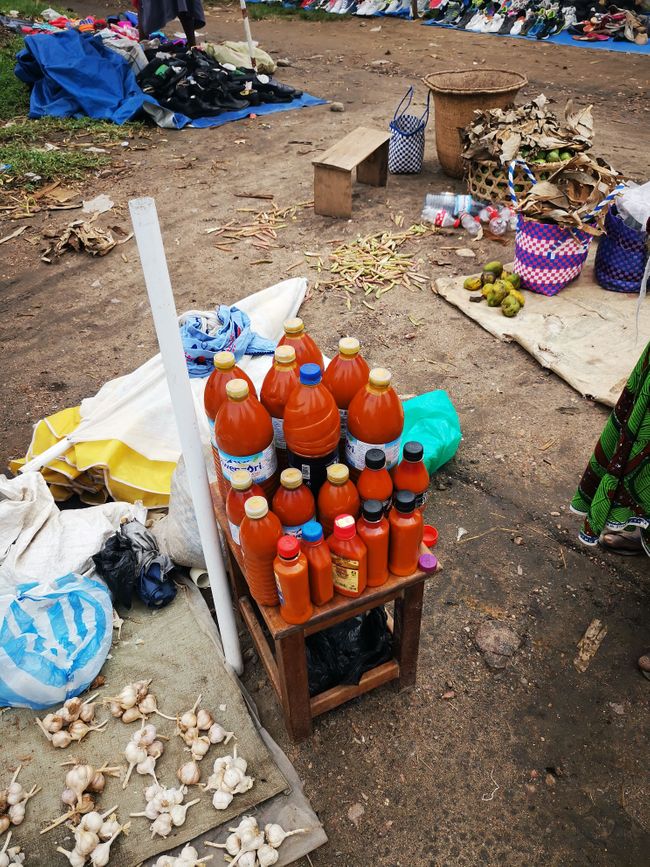
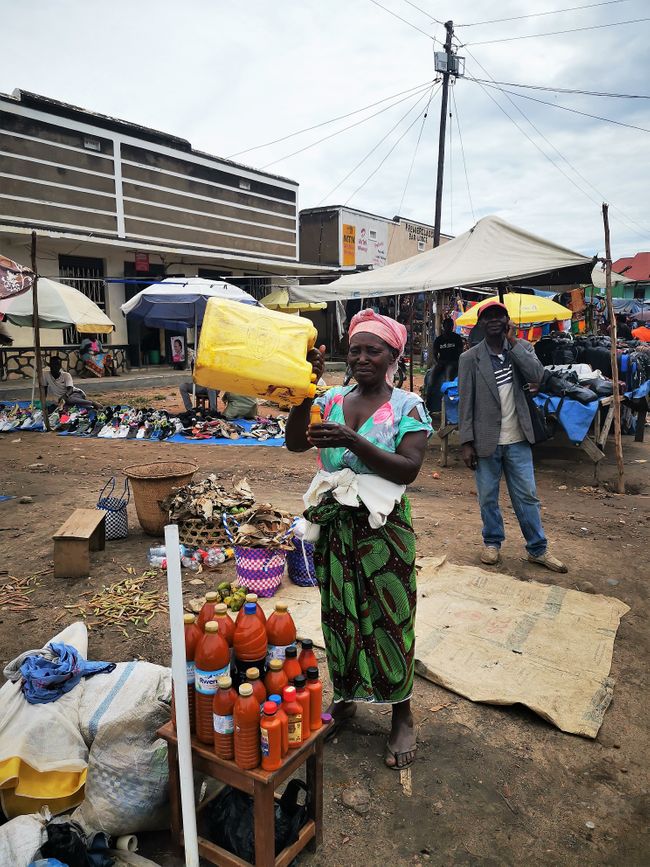
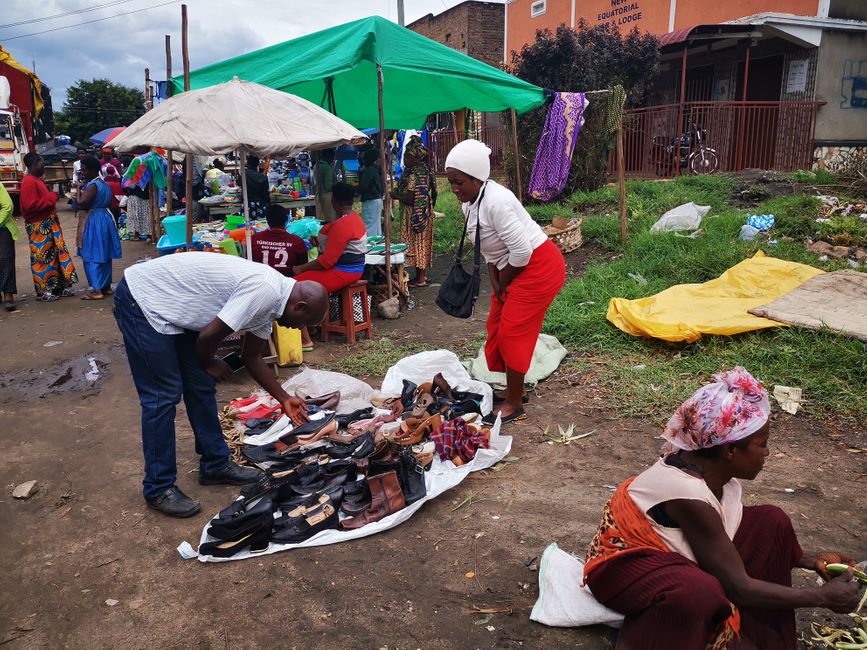
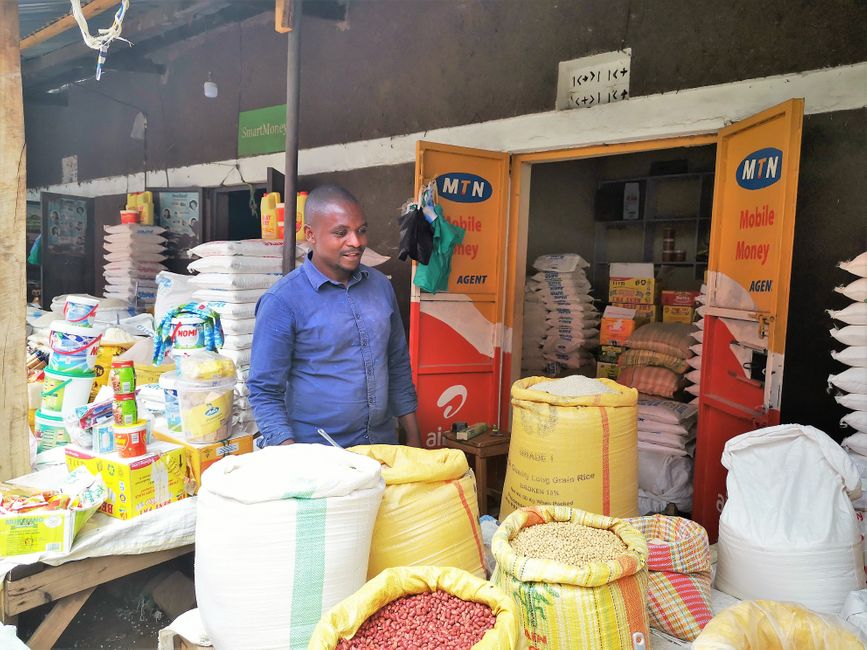
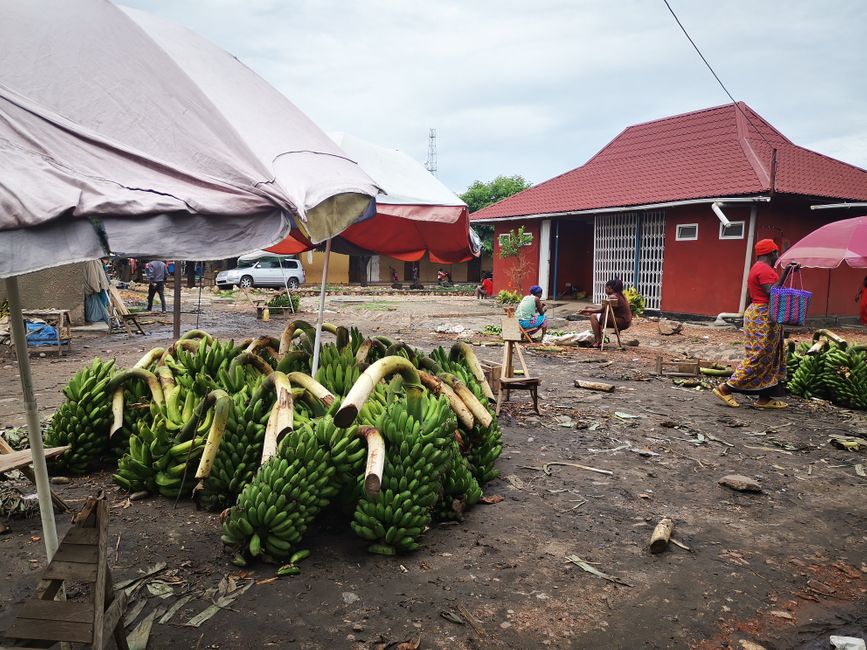
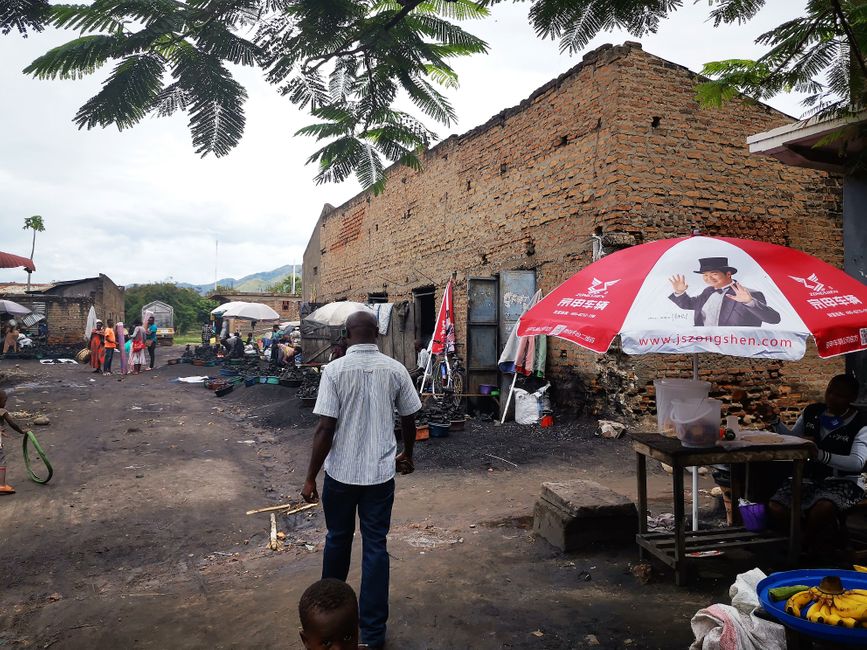
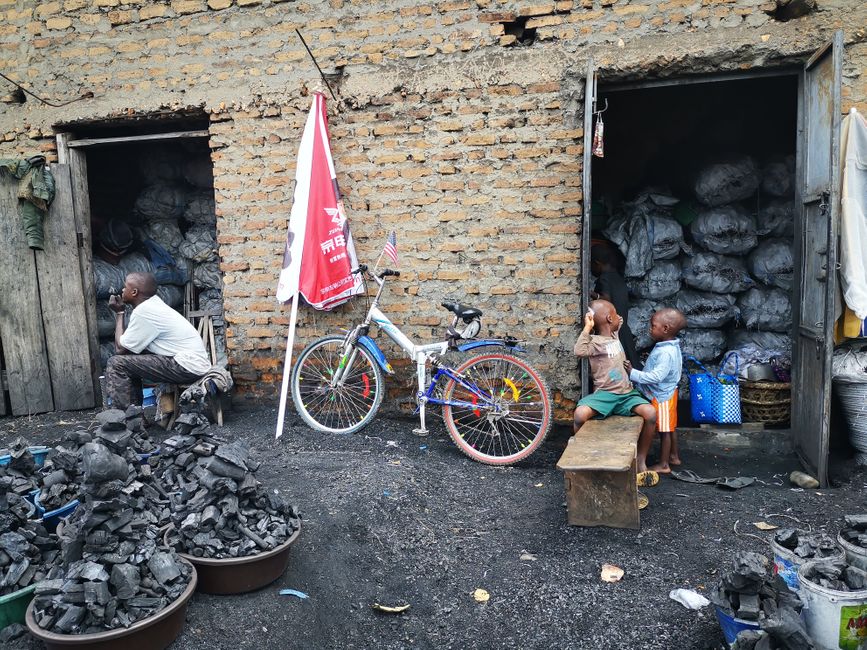
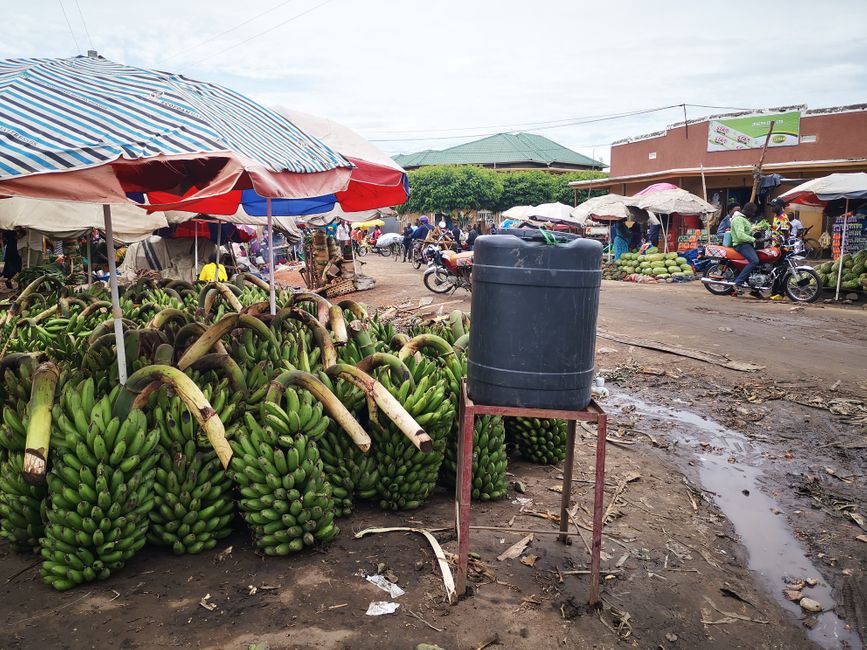
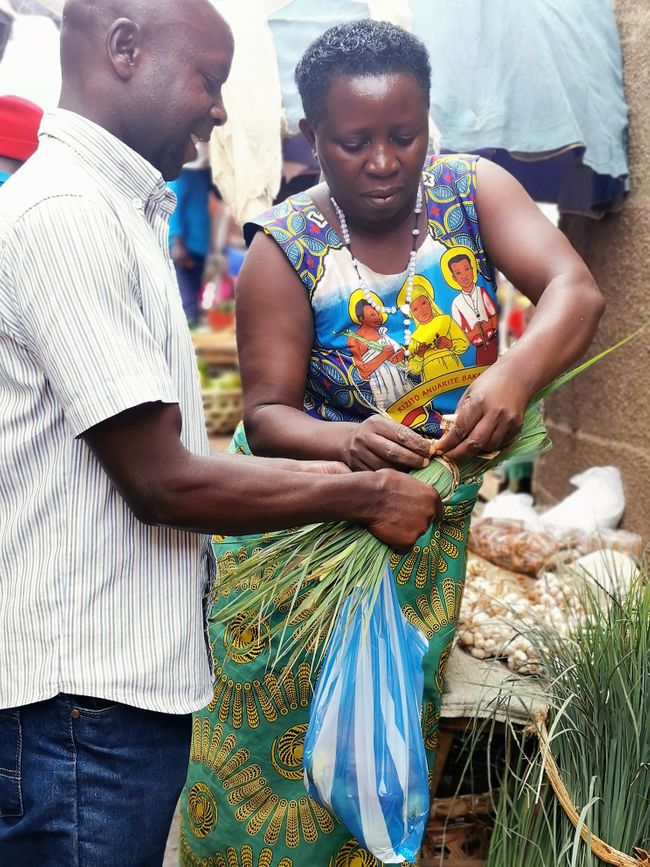
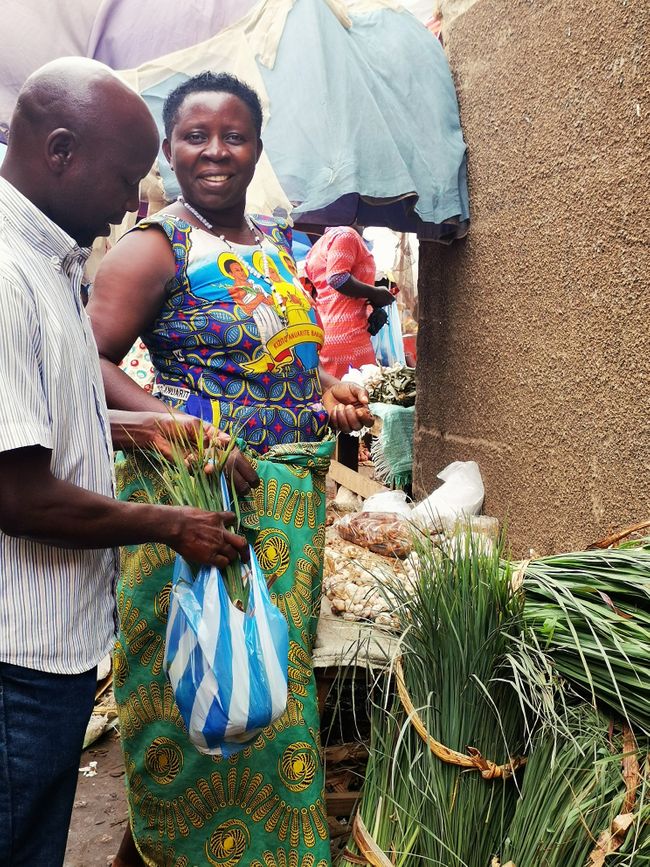
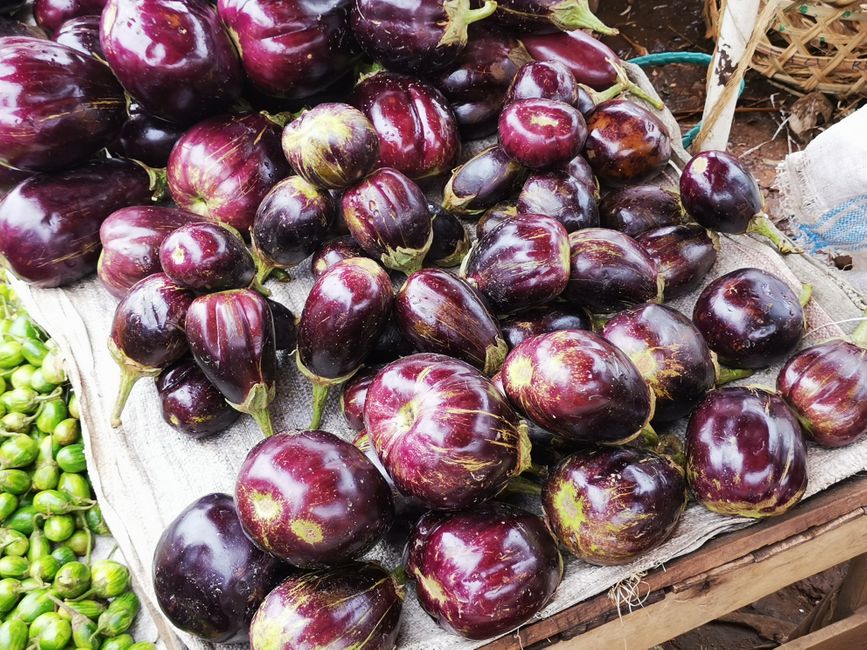
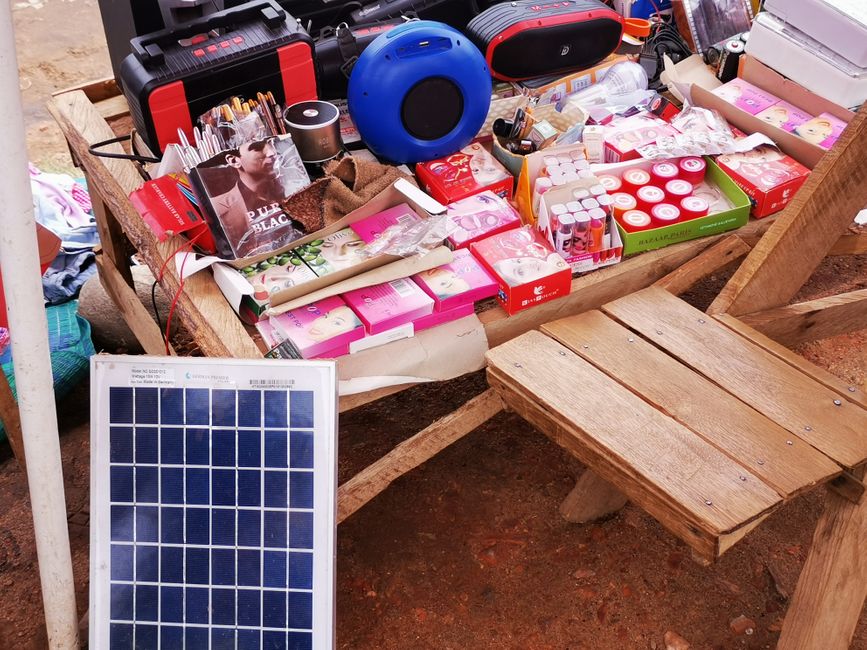
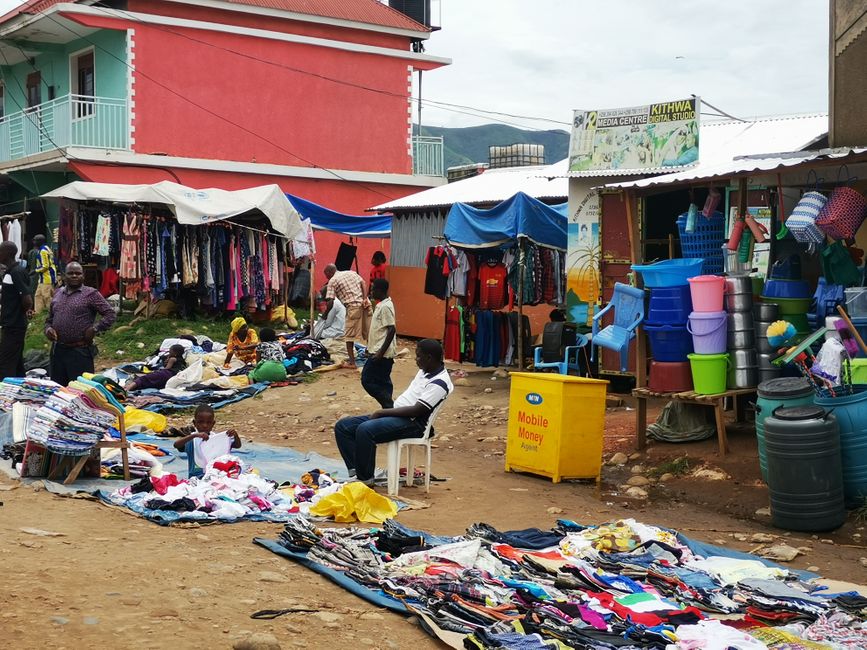
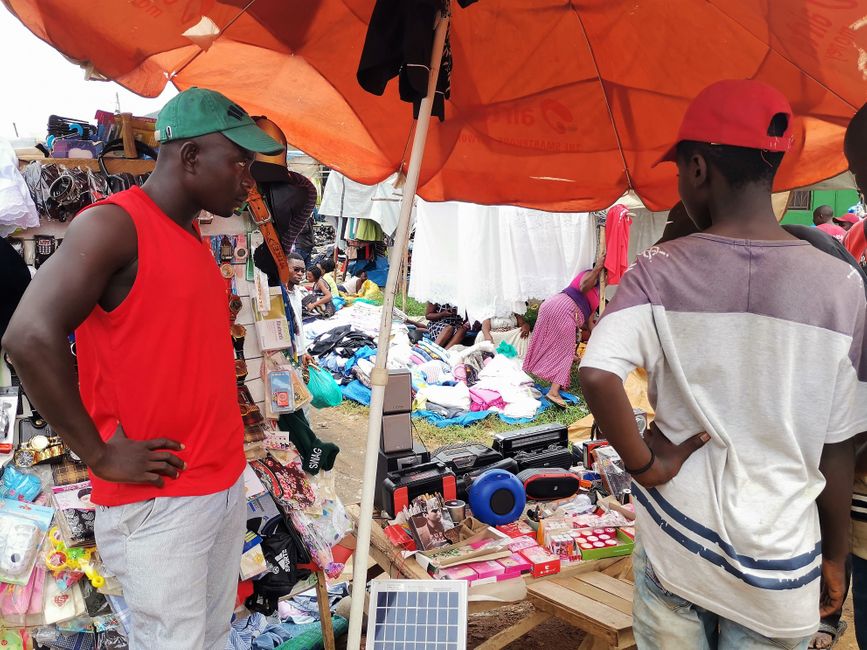
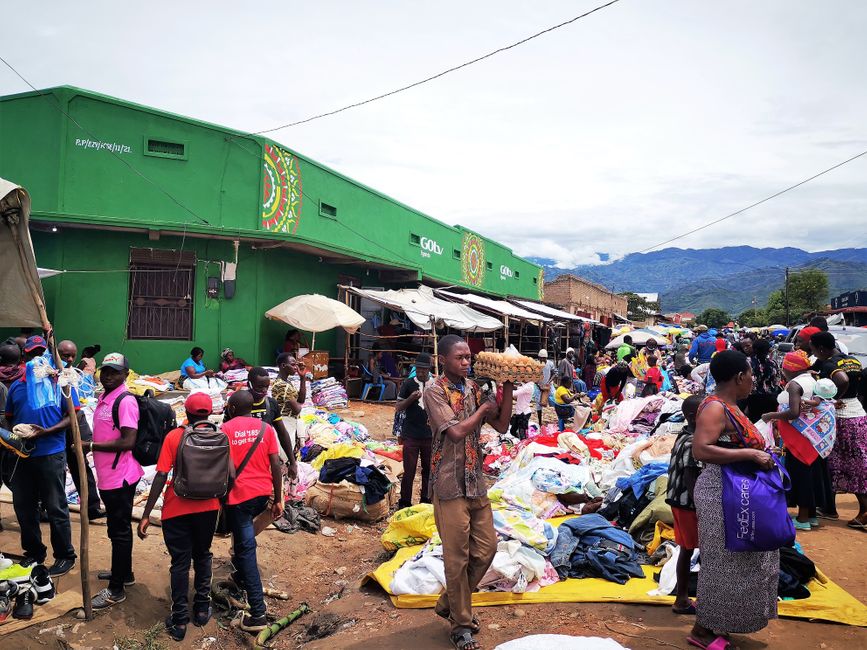
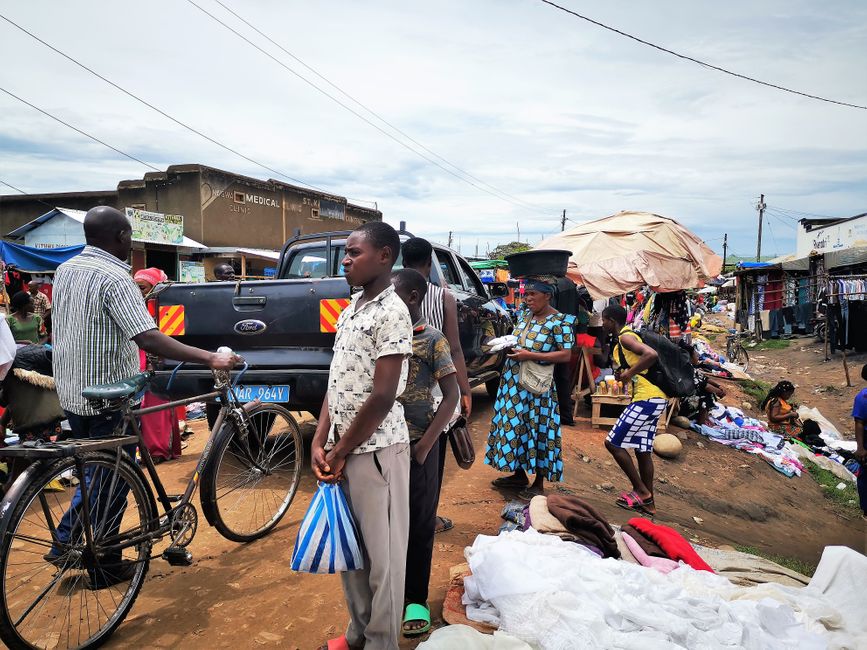
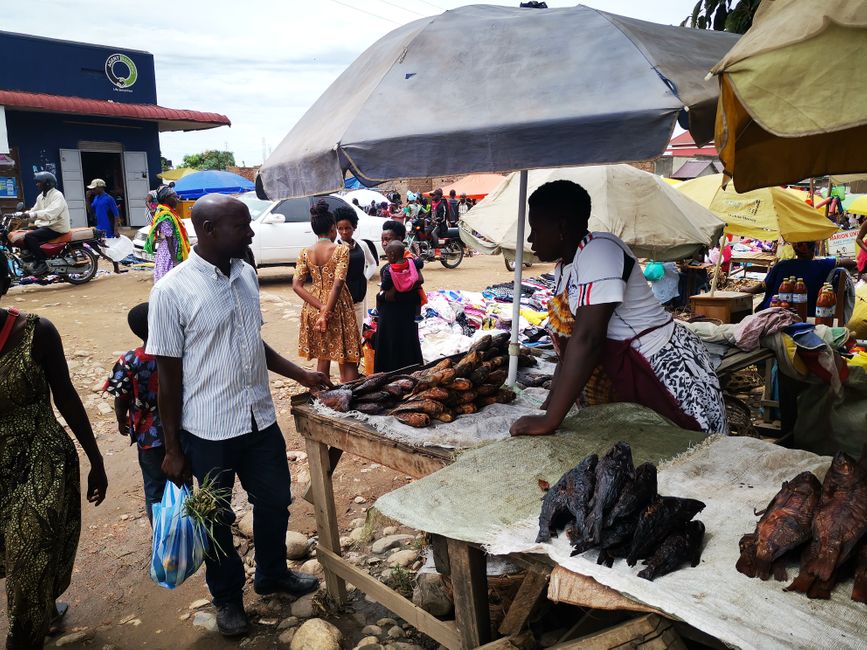
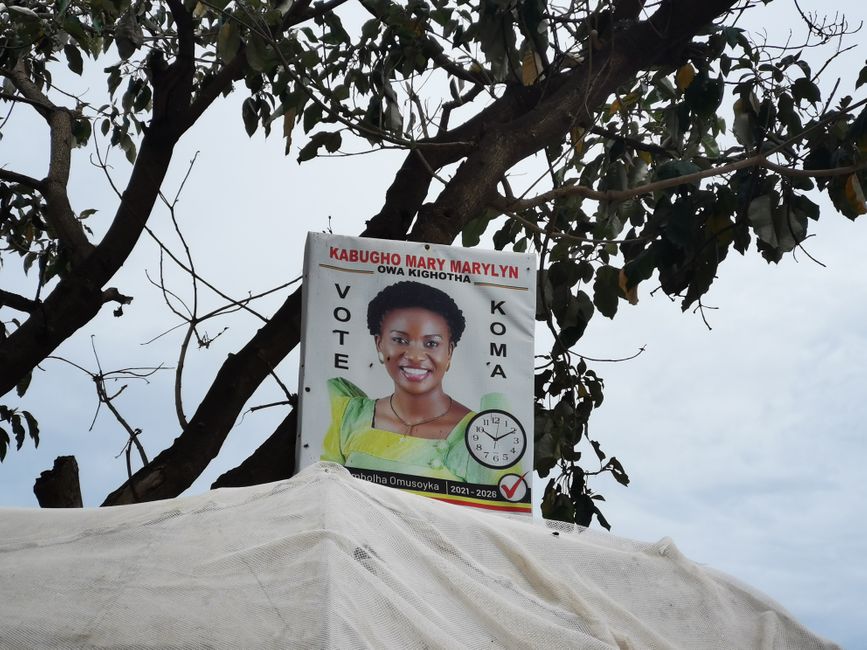
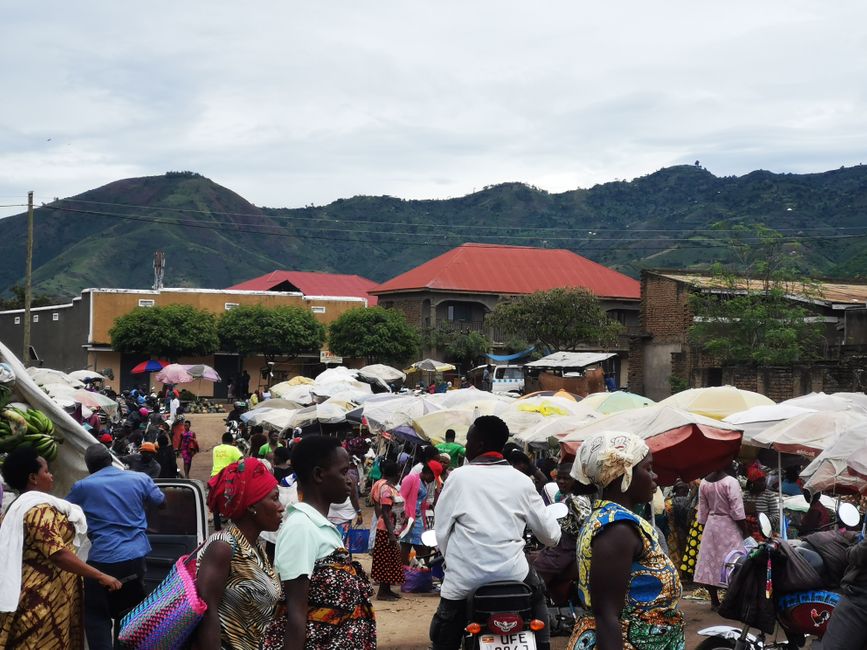
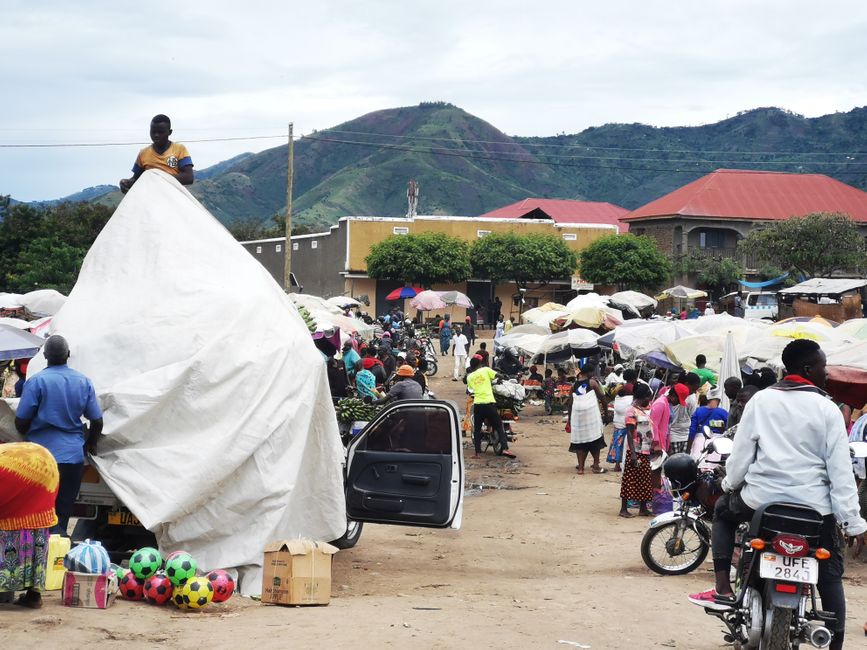
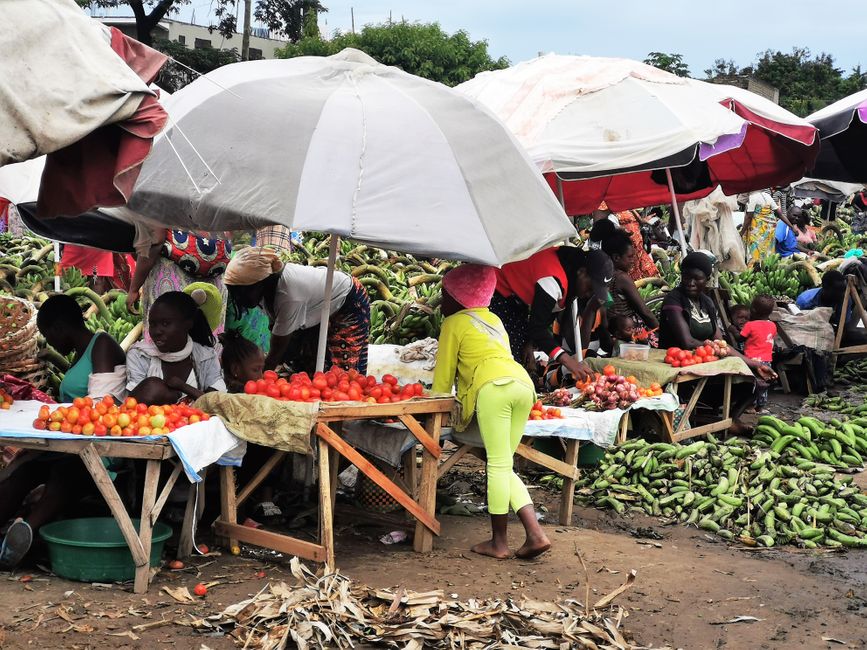
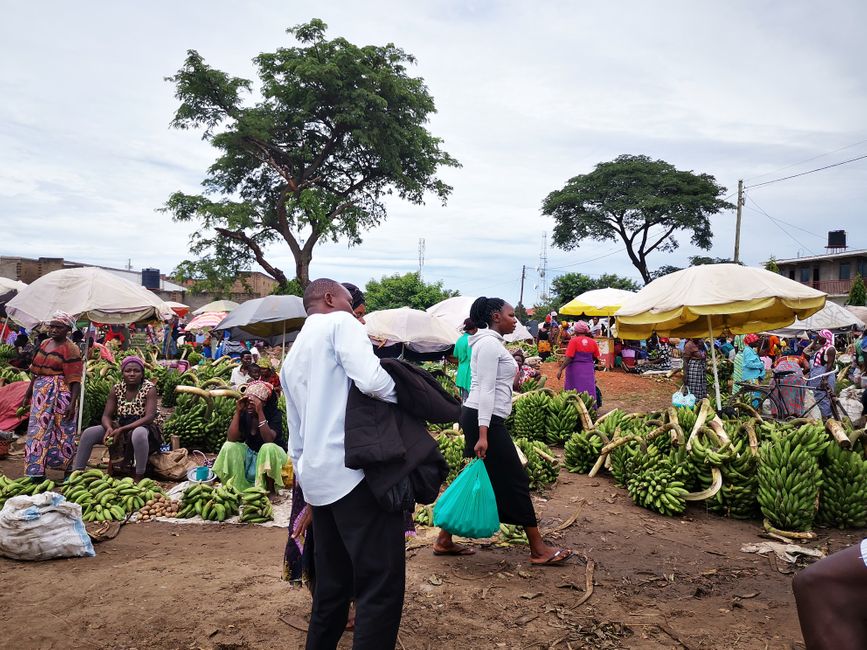
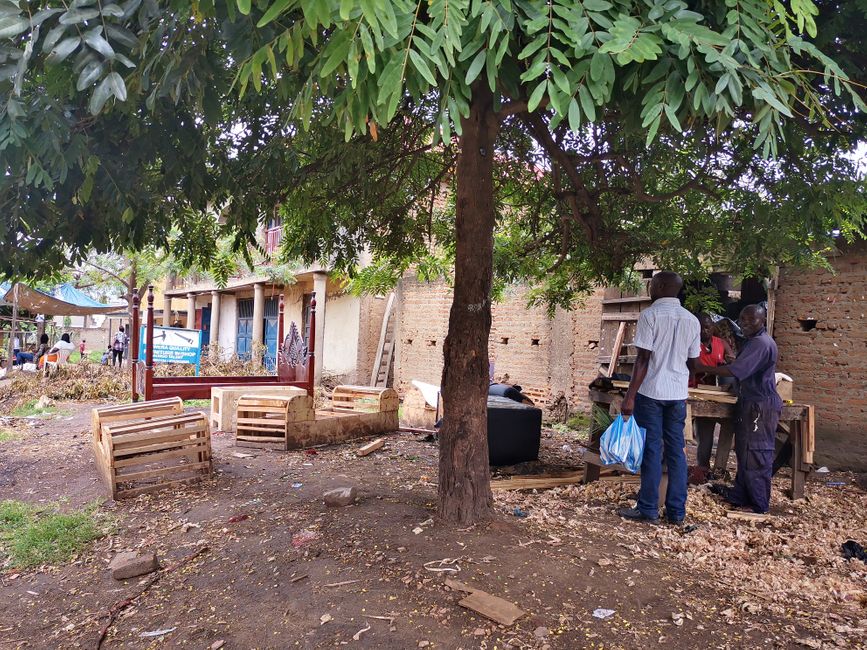
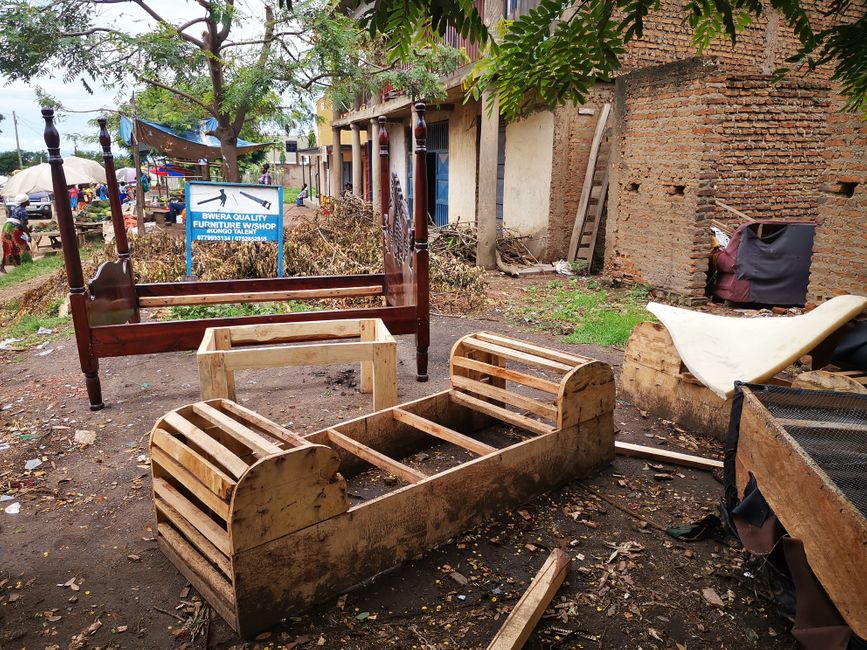
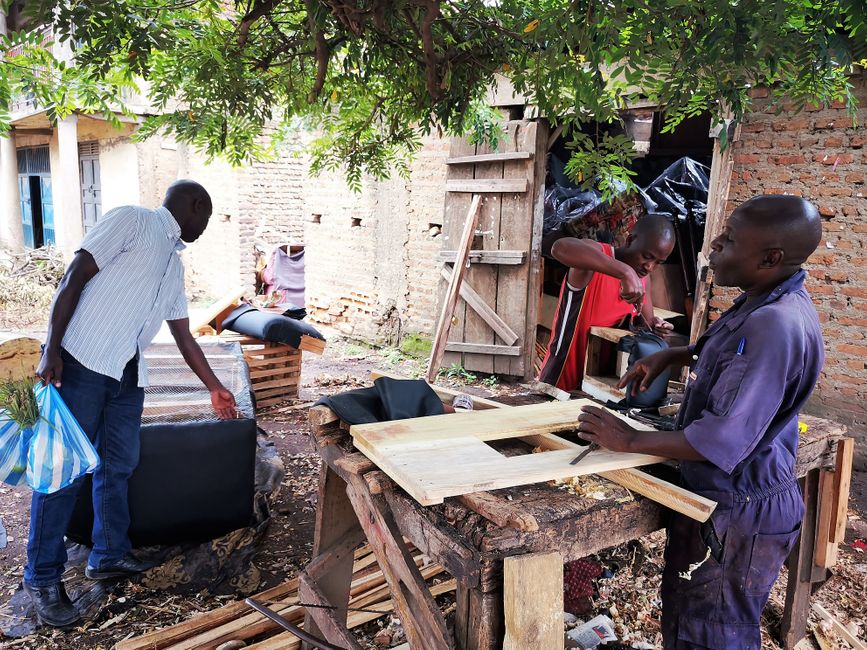
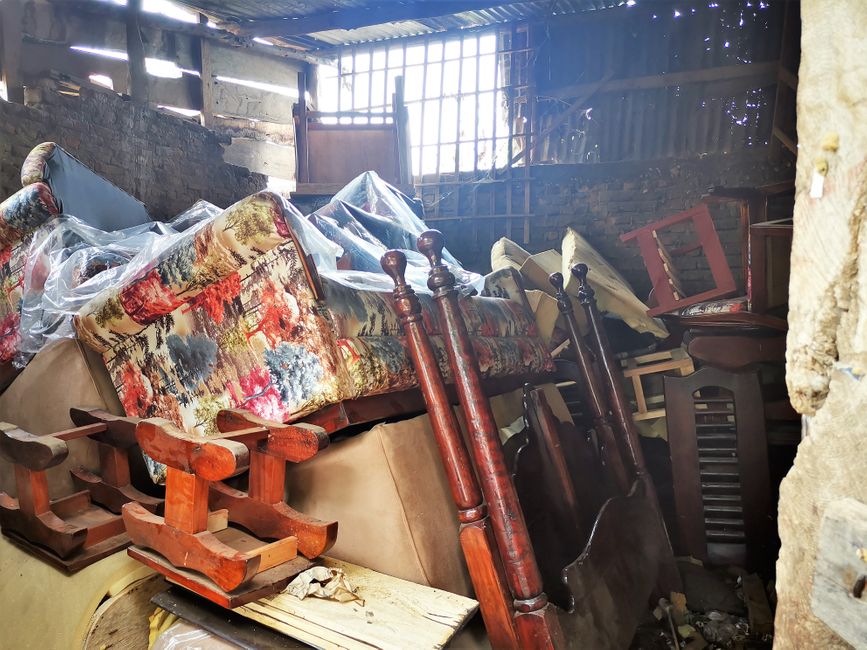
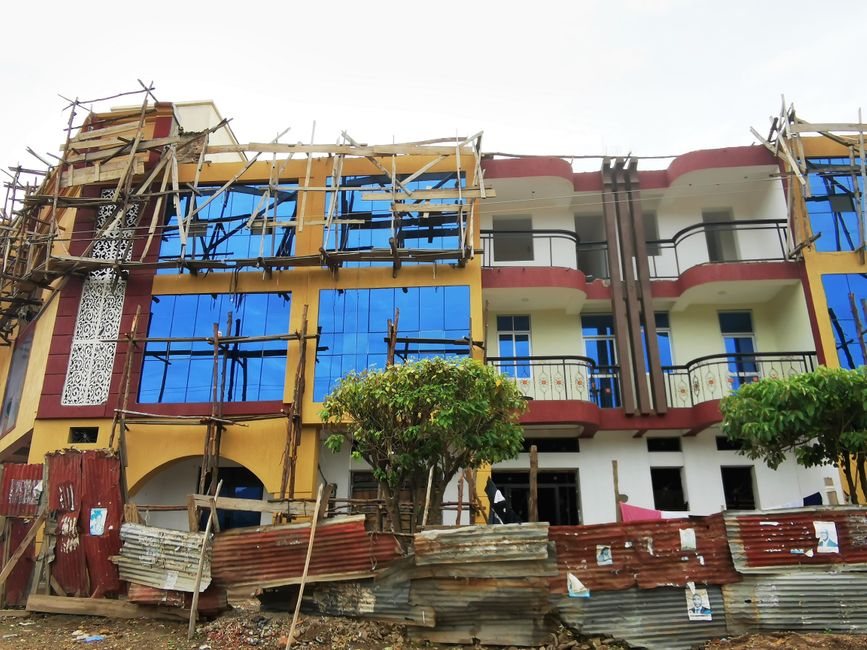
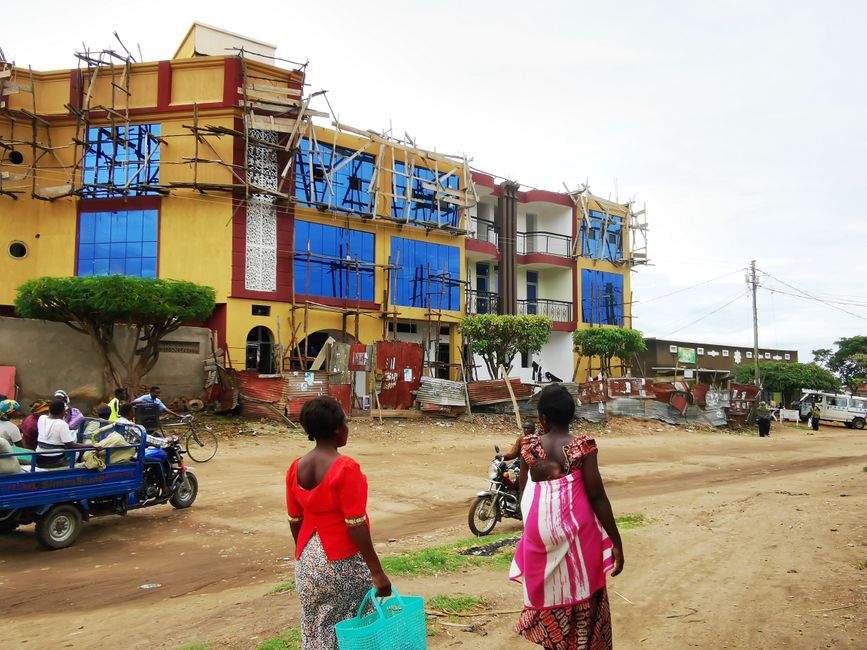
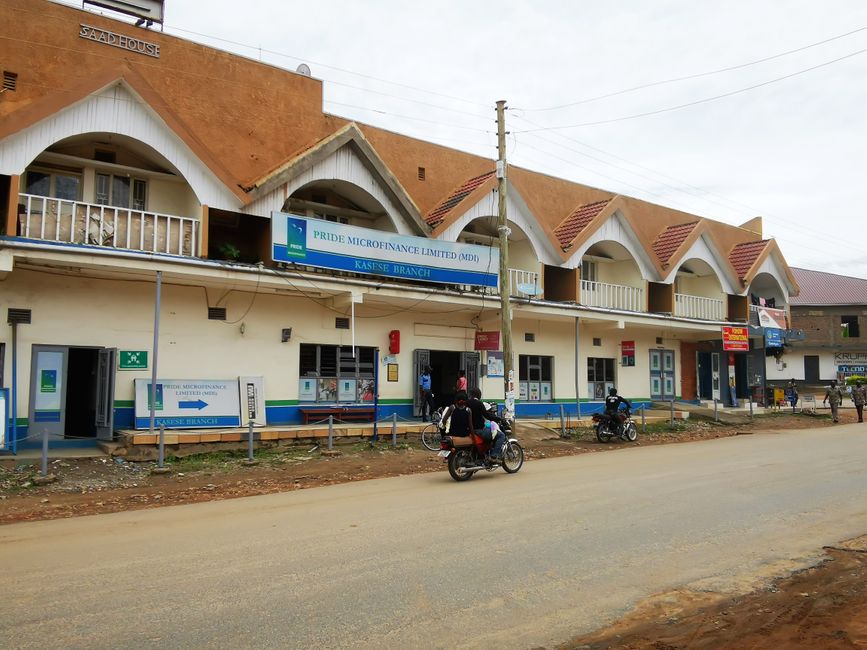
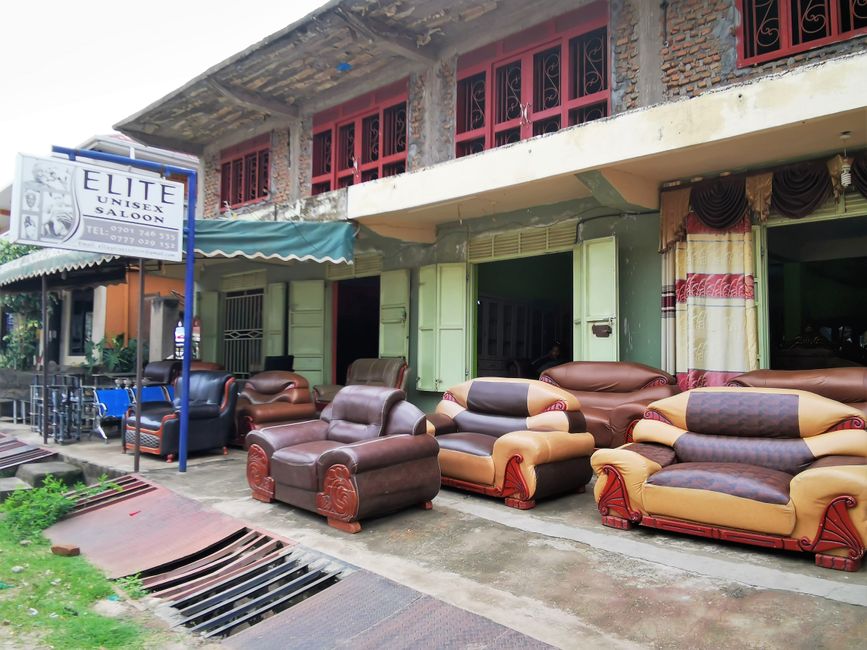
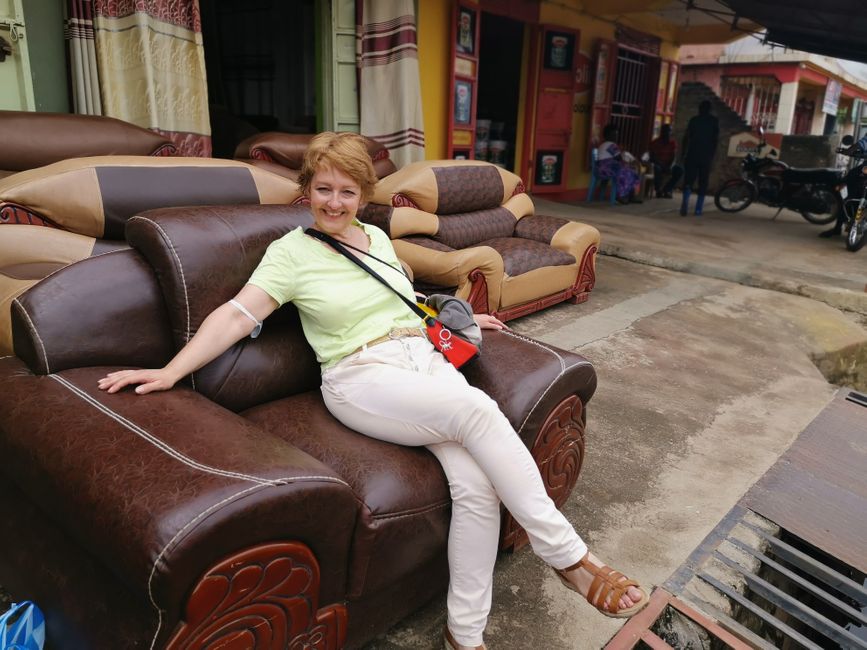
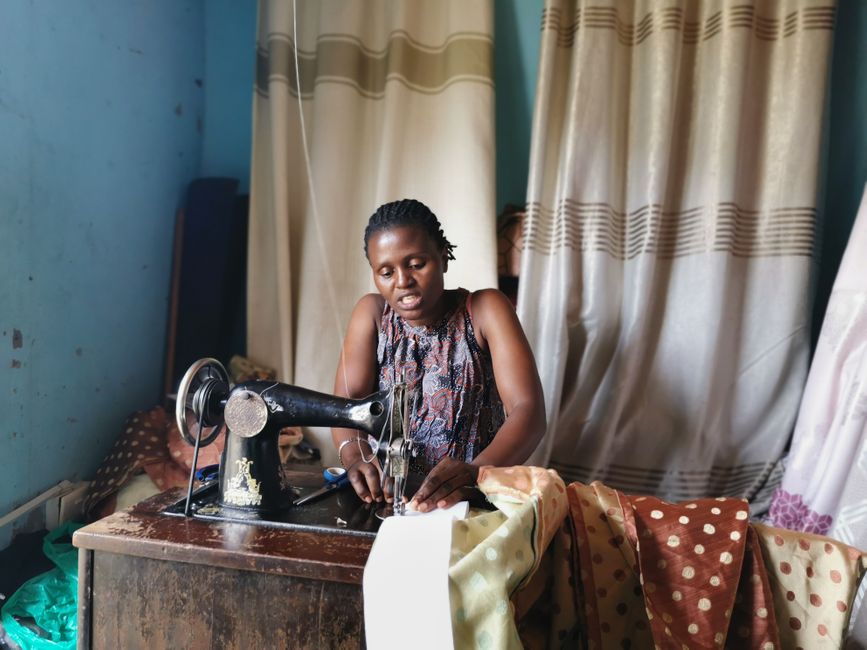
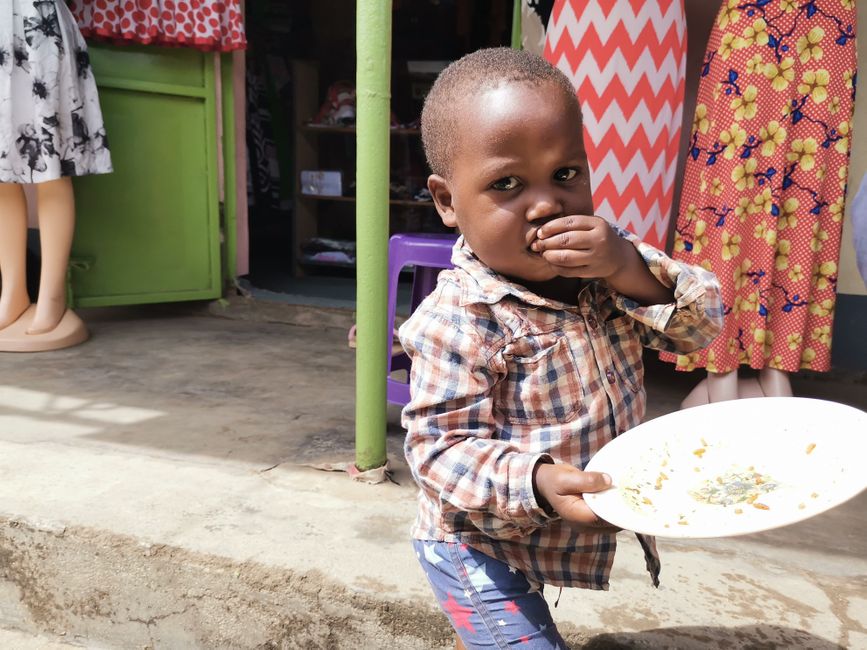
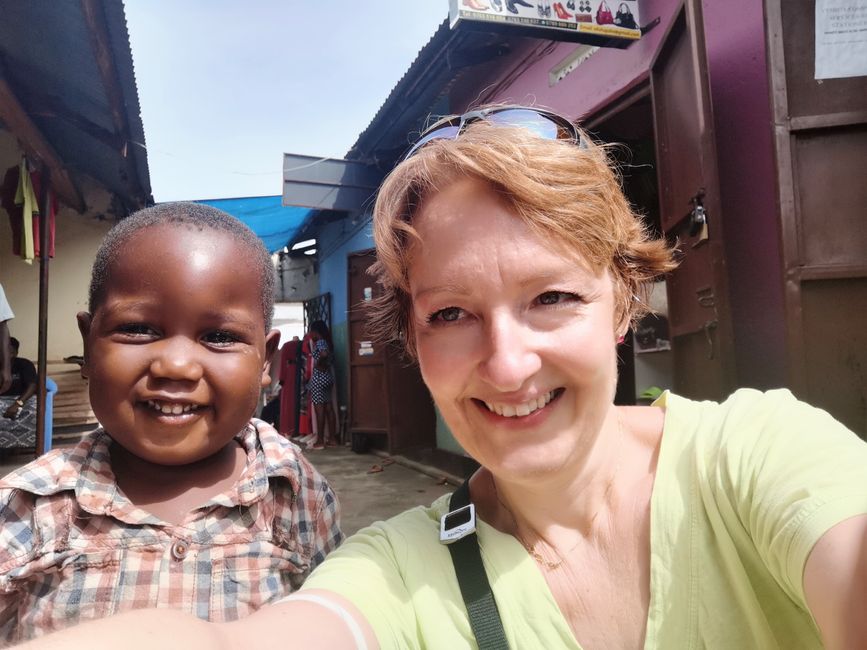
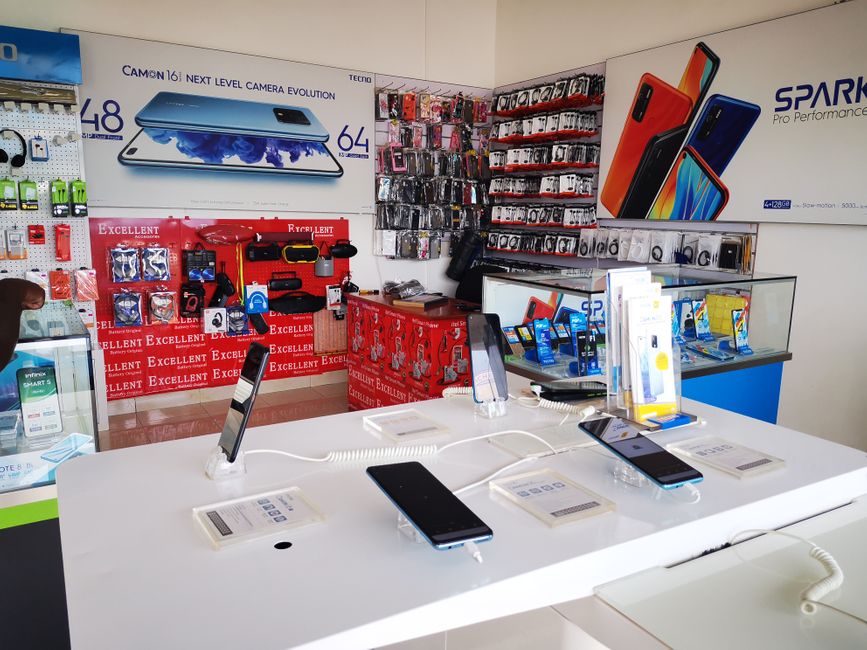
Naročite se na glasilo
When I wake up in the morning, it is pouring rain and it has actually cooled down a bit. However, the temperatures will surely rise back to around 28 degrees Celsius during the day. That is considered cool for this region, as I learn from my colleagues. What really makes me sweat here is not the heat, but the high humidity, which is currently about 70% during the rainy season.
Today, Bwambale will show me the local market. He is running late because he has to wait for the rain to stop before he can take the Boda-Boda motorcycle taxi to get here.
On the way to the market, a street child follows us, begging energetically. Although it is difficult for me, I do not give money in this case, as it does not help and only exacerbates the problem in the long run. Currently, begging by street children is still very limited here. In India, I have experienced very different conditions, where I constantly had a horde of begging children following me. Bwambale tells me that a home for street children was set up in Kasese by one of the aid organizations. However, most of them ran away from there because they find it difficult to adhere to a minimum set of rules after spending a long time on the streets, and they prefer to endure hunger rather than conform to a system.
I tell Bwambale that there are also very poor people in Germany who live on the streets, and child poverty is also an issue. But I can tell that he does not want to hear that and keeps diverting the conversation. Well, it was worth a try. Germany is one of the richest countries in the world, so it is completely absurd for people here to understand that poverty is also a problem for us.
To get to the market, we have to cross the bus station in Kasese. The entrance is guarded, our temperature is measured, our hands are disinfected, and we have to wear our face masks. This is one of the few places where strict adherence to COVID-19 safety measures is enforced. Otherwise, you rarely see people wearing masks in public here, and if I do wear one, it is more like an "armband". There are water tanks with soap water in front of shops and restaurants, where we wash our hands before entering, and signs at the entrances remind us of the AHA rules.
As I have described in my previous blog posts, I am hardly concerned about getting infected with Corona here, but rather about contracting malaria, especially since I have decided not to take malaria prophylaxis. I also had the great fortune of receiving the first dose of the COVID-19 vaccine before my departure. I would have traveled to Uganda even without the vaccine, and initially it looked like I would have to do without it. Then, in March, development workers were prioritized as a high-risk group in the Federal Gazette, but there was no more vaccine available in Hamburg at that time. Shortly before my departure, I managed to secure a vaccination appointment. However, it almost didn't happen because my last vaccination appointment (I went through a real vaccination sprint in March) was less than 14 days ago. The friendly doctor told me that they had sent everyone away in such cases so far. But he was very understanding of my situation, consulted again, and I signed that it was my strong desire to receive the vaccine.
At this point, I would like to express a huge thank you to the vaccination center in Hamburg! There has been a lot of criticism of the German organizational culture in recent months, which does indeed slow down everything to some extent. But like everything in life, there are always two sides to the coin. And thanks to the perfect organization at the vaccination center, everything went smoothly, and I had completed all the stations in just over half an hour. It is also worth mentioning the exceptional friendliness of all the staff I had contact with. I felt very well taken care of here! Therefore, my big thank you goes to the great work of all the employees at the Hamburg vaccination center at this point!
The Mawa Market is very large and completely maze-like. After the recent rainfalls, the paths between the stalls are muddy, and there are puddles everywhere (favorite breeding grounds for mosquitoes...). The variety of fruits and vegetables is huge, but spices, palm oil, shoes, clothes, electronics, etc. are also sold here. The fruits and vegetables come from farmers in the region, who grow the majority for their own consumption and only sell a small portion of their harvest at markets like this. One reason for this is that they have very little land of their own, seedlings and seeds are expensive, and there are no irrigation systems. The planting and harvesting times depend on the rainy season. There can be two harvests per year, and the remaining months are used for cultivation.
Bwambale is highly respected everywhere, and the people are incredibly grateful for what RWECO-Vide does for them. Whether we are walking through Kasese or here at the market, he is greeted by everyone, and we often stop to exchange a few words. We also meet various relatives of Bwambale here, such as his older sister Sarah. In Uganda, the extended family plays an important role, as it provides support, mutual assistance, and exchange.
Here at the market, like everywhere else, there are plenty of great photo opportunities. However, many people do not want to be photographed. I have experienced this in Arab culture, where it is forbidden for religious reasons (You shall not make for yourself an image). I have not yet found out why this is the case here. Some respond to my question of whether I can take a photo by asking me to pay, which I do not accept. But this cannot be the real reason either. Even when I photograph an empty shop in the market, a woman gets upset about it. On the other hand, some people are very happy and really want to be photographed.
A large pick-up truck is making its way through the crowd. I ask Bwambale who can afford such a car here, as it is extremely expensive even in Germany. He says that it is either government employees or employees of NGOs (non-governmental organizations), but they make up only a fraction of the total population.
On the way back to the center, I take a look at a furniture workshop. I really like the design of the wooden beds with four posts to attach the mosquito net. One of the craftsmen explains to me the purpose of the fine-mesh wire net that is attached to the bottom of a couch and contains a hole. This prevents rats from eating through the upholstery. They go through the hole into the net and can be easily caught from there.
Appropriately, we pass by a furniture store shortly after, and I am interested to know how much a sofa set would cost here. The prices start at 1,500,000 UGX (about 350 euros) for a leather seating group. Of course, the furniture store is only an option for the few rich people, and the majority of people here have to make do with plastic furniture.
I take a look at the new hotel Imperial, which is nearing completion. Bwambale's younger brother Maurice works here. I also have one of the rooms shown to me and realize that this hotel is very similar to the hotel where I am staying. I advised my colleagues to pay attention to uniqueness when they start building the planned guesthouses. Because hotels like this one or the TJ Global, where I am staying, can be found all over the world. Today, tourists are looking for something special and authentic, and they are willing to pay accordingly.
I notice that several hotels are under construction, and I ask if they are all needed, which Bwambale confirms. Before the pandemic, sometimes all the existing hotels and guesthouses were fully booked. This is due to the many international aid organizations that are active here and regularly hold conferences.
As I requested, Bwambale takes me to a restaurant for lunch that he also eats at. And slowly but surely, I begin to understand how the <local cuisine works. I have never seen a menu here. You order directly from the waiter what you want. There are always various side dishes, such as mashed potatoes, sweet potatoes, Posho (maize mash, tastes like rice), rice, Ubundu (cassava), or Matoke (banana mash), from which you choose a combination, along with vegetables. Then you choose from chicken, fish, goat, or beef meat dishes, which are served in broth/sauce and used to dip the side dishes. Everything is freshly prepared without any additives, and spices are also used very sparingly.
What I have eaten here so far fills my stomach, but it is not really to my taste. The other day, I ordered chicken that was incredibly tough. That's why I asked Bwambale if they slaughter the chickens when they are young or old, and the answer was as I expected, they slaughter old chickens. That explains the tough meat. It is understandable that, fortunately, there is no factory farming here, and the young chickens are responsible for laying eggs.
I am uncomplicated when it comes to food, so it is not a problem for the time I am here. It is definitely healthy 😊 And maybe I will find dishes that I also enjoy.
For my dinner today, I have actually provided for myself: At the Mawa Market, I stocked up on all sorts of fruits, some of which I don't even know the names of. I also got a big eggplant and lemongrass for fresh tea. I bring my haul to the cook in the hotel restaurant. I tell him and also the hotel manager that I am very impressed with the variety of fruits and vegetables at the local market and that I find it a pity that the hotel always offers the same things. The fruit selection is limited to bananas, watermelon, and pineapple. I suggest that it would be a great idea for them to use the local market as a major buyer and thus support the local economy, and I am sure that the other hotel guests would also appreciate a bit more variety.
In the evening, I enjoy a delicious dinner that the cook has come up with using my ingredients, and I thank him warmly.
Naročite se na glasilo
Odgovori (1)
Ruth
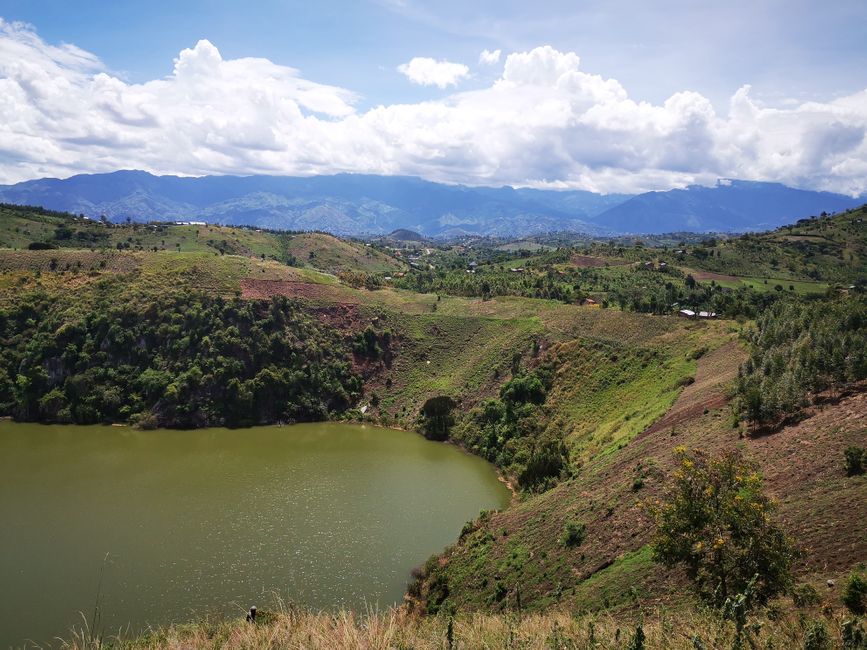
Poročila o potovanjih Uganda

